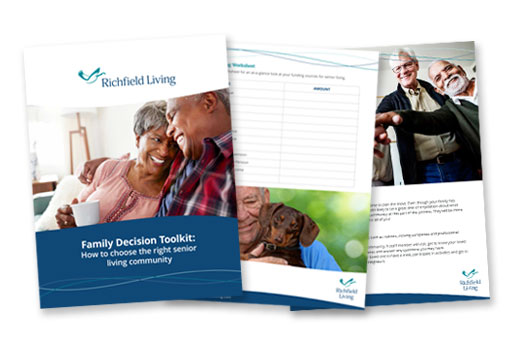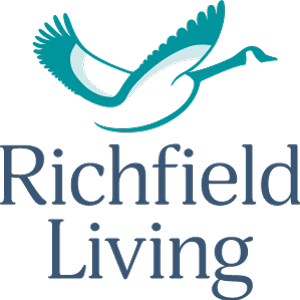Alzheimer’s Notes: The Powerful Connection between Music and Memory Care Communities

There’s something about the power of music; how a few notes, a melody can immediately take you back to a moment in time. Songs connect us with happy times, sad times, exciting moments; music really is the soundtrack to our life. Perhaps that’s why music can still reach us, when sometimes nothing else can.
Research has shown that for those with Alzheimer’s and dementia, music can help with everything from lessening anxiety and agitation to improving cognitive function and even the ability to swallow. We’ll show you how, why and what you can do to incorporate music into your loved one’s life.
The Connection
Researchers have found a strong connection between the brain’s auditory cortex and its limbic system, where emotions are processed. “This biological link makes it possible for sound to be processed almost immediately by the areas of the brain that are associated with long-term memory and the emotions,” says Concetta Tomaino, Director of the Institute for Music and Neurologic Function at Beth Abraham Family of Health Services in New York.
Suzanne Hanser, PhD, Department Chair of Music Therapy at Berklee College of Music in Boston and former program director of San Francisco’s Alzheimer’s Association shares, “We see people who have not spoken in years begin to sing songs that they knew in their early teens and early adulthood.”
But why? Researchers believe it’s because:
- Music evokes powerful emotions that can stimulate memories
- Music can shift mood and lessen stress
- Musical aptitude and appreciation linger even as other abilities fade
- Music can bring about emotional and physical connection and positive interactions
- Music engages both sides of the brain
Dr. Laura Mosqueda, Director of Geriatrics at the University of California, Irvine School of Medicine, explains that music creates an “awakening” of sorts as it can reach areas of the brain that may not be damaged by Alzheimer’s and bring those pathways to the forefront.
Incorporating Music At Home
Music can bring you and your loved one together. Even in the late-stages of Alzheimer’s when verbal communication is difficult, a person may be able to tap with the beat or possibly sing along. And not only does music offer reduced anxiety and stress for your loved one; it can lighten the mood for caregivers too!
To add music to your loved one’s daily routine:
- Identify music that’s familiar and enjoyable – If you don’t know their favorites yourself, check with family members, friends or if possible, let them choose the music. And pay attention to their response; play songs they seem to enjoy more often and avoid any that they seem to react negatively toward.
- Consider the mood you want to create – Perhaps mealtime or dressing is a stressful time; use peaceful tunes to encourage a sense of calm. On the other hand, high tempo songs can boost spirits and perhaps provide an opportunity to have fun clapping or dancing together.
- Encourage connection – Singing together brings about a sense of closeness and comradery. And why not bring out old pictures or photo albums while the music is on? Having the sound trigger as well as the visual cue could enable you to reminisce and share memories that your loved one may not otherwise recall.
- Keep it simple – Make sure the volume is not too loud and avoid sensory overload by eliminating competing noises from the television or outside. Also make sure to choose a source that doesn’t interrupt with commercials as that can cause confusion.
The Benefits of Music Therapy
- Improvement in cognitive function
- Positive changes in mood and/or emotional state
- Ability to interact socially with others
- Reduction in behaviors associated with Alzheimer’s
- Management of pain and discomfort without medication
- Physical improvements such as ability to swallow and/or self-feed
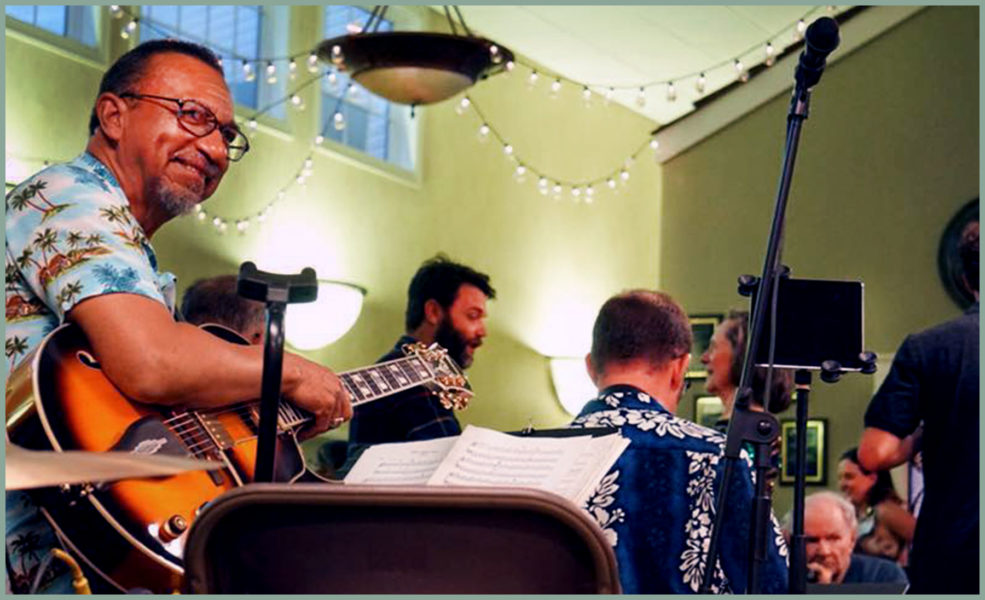
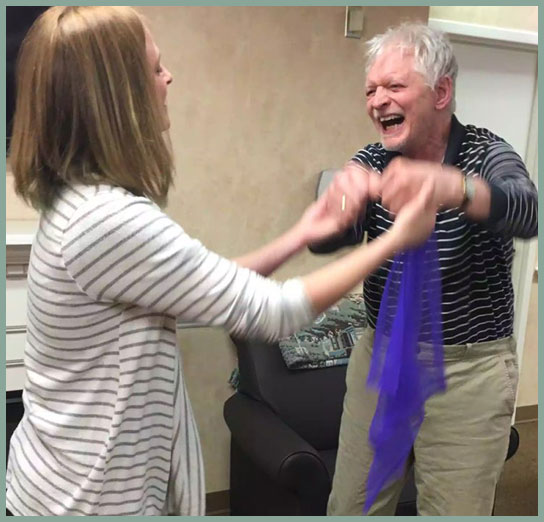
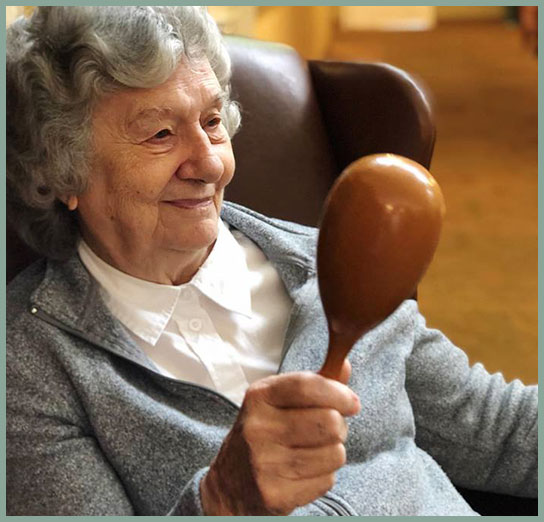
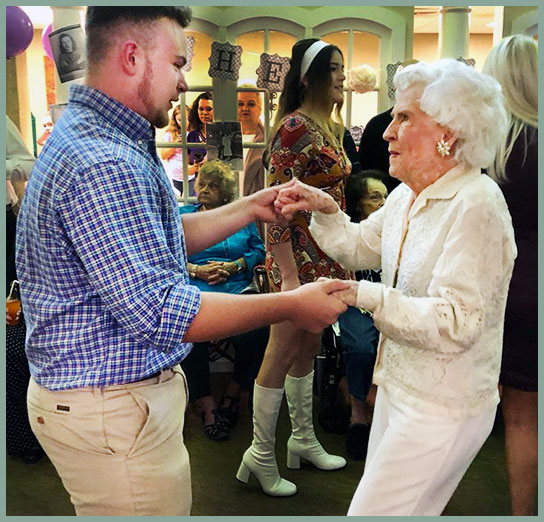
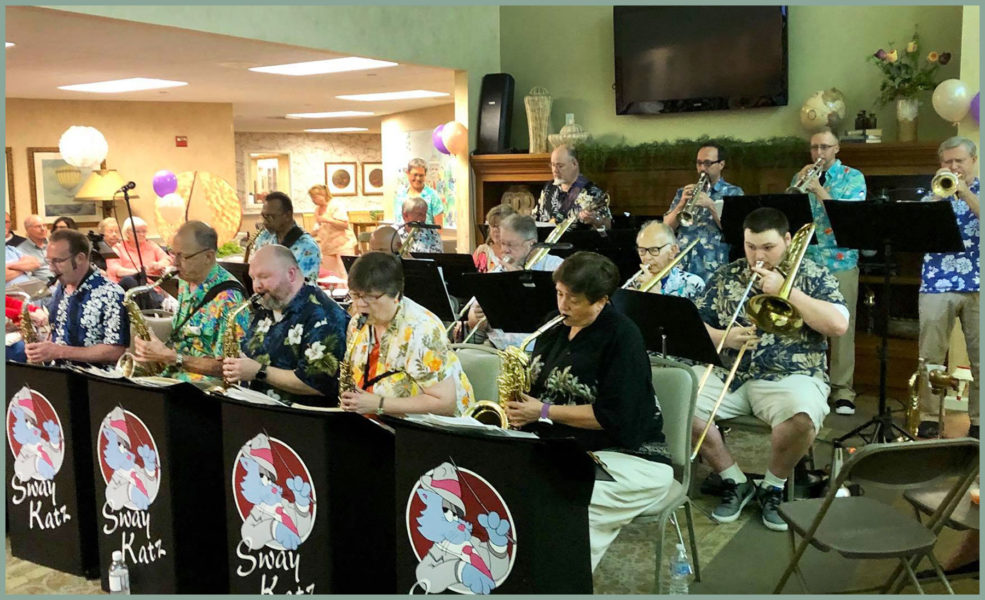
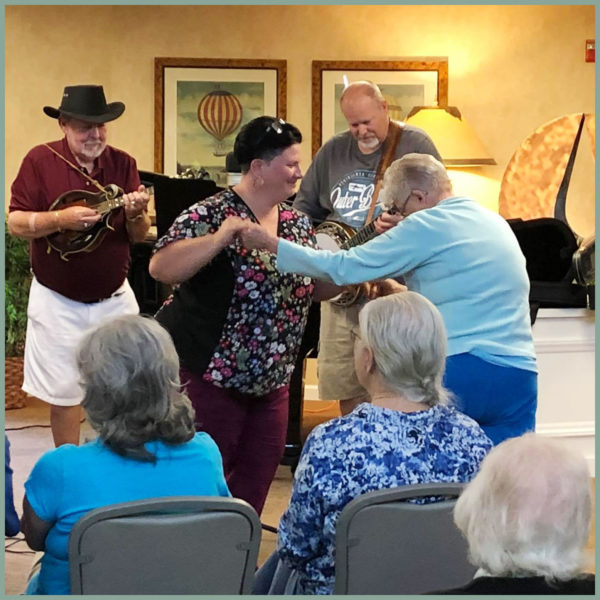
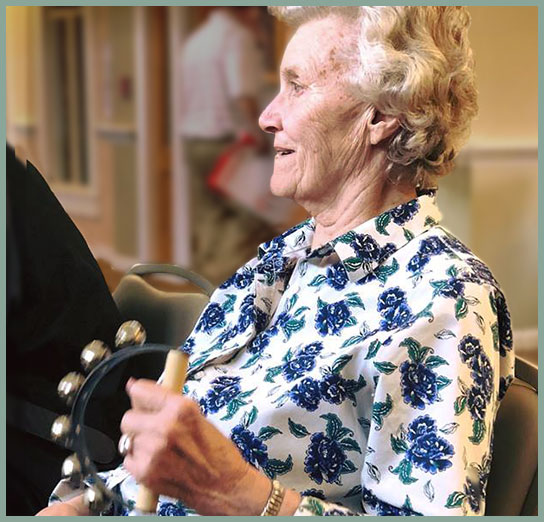
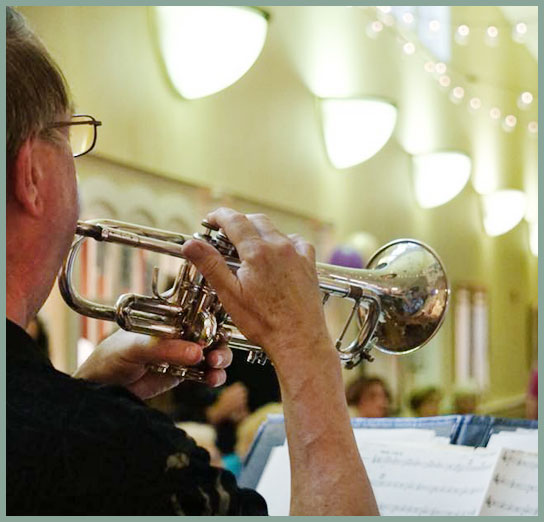
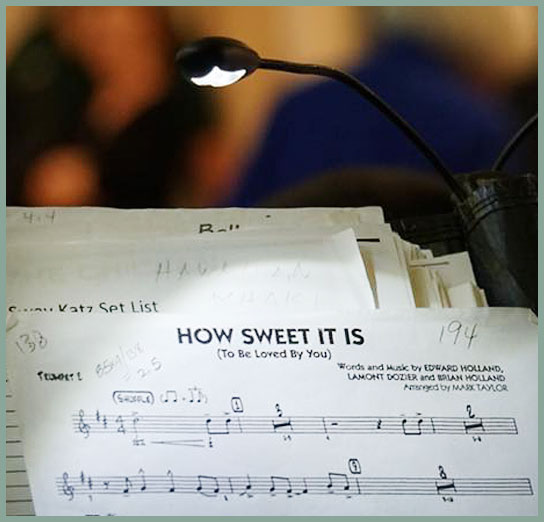
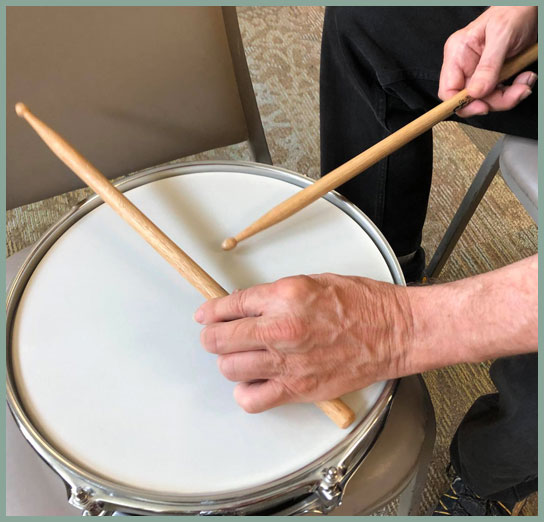
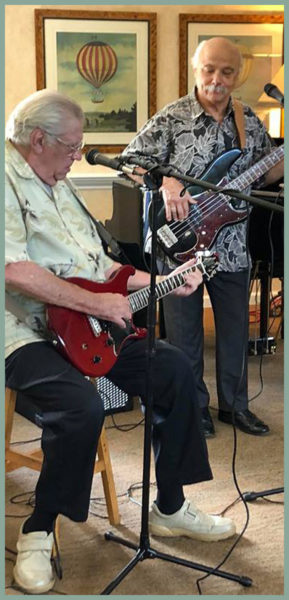
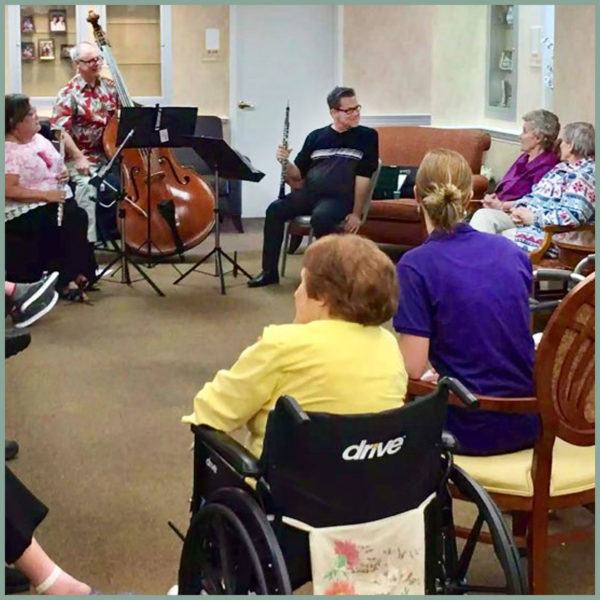
Schedule a call or visit
We’d love to answer your questions or give you a tour. We’ll be in touch soon!
Please allow 48 hours in advance for scheduling a visit. Tours available Monday-Friday.
